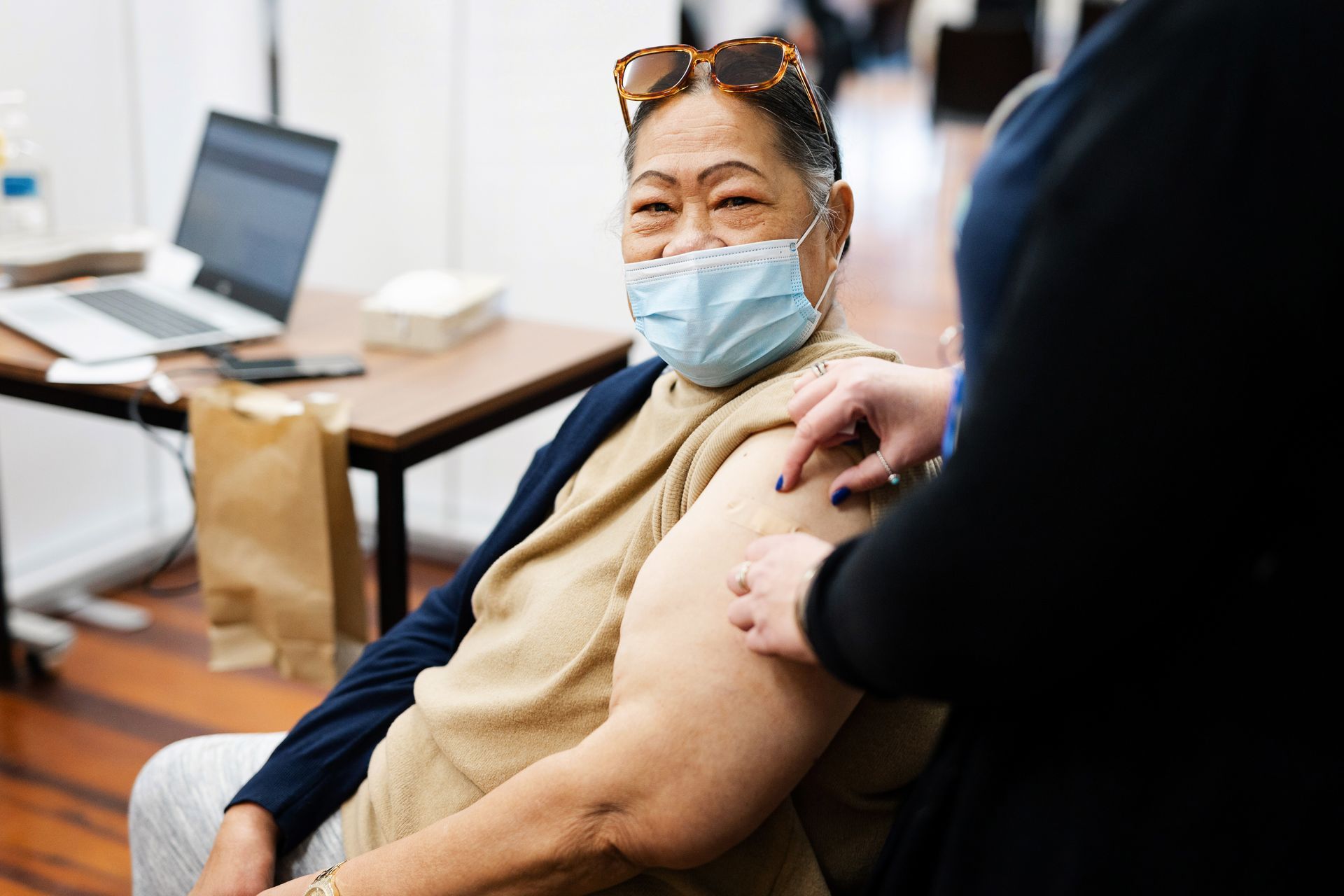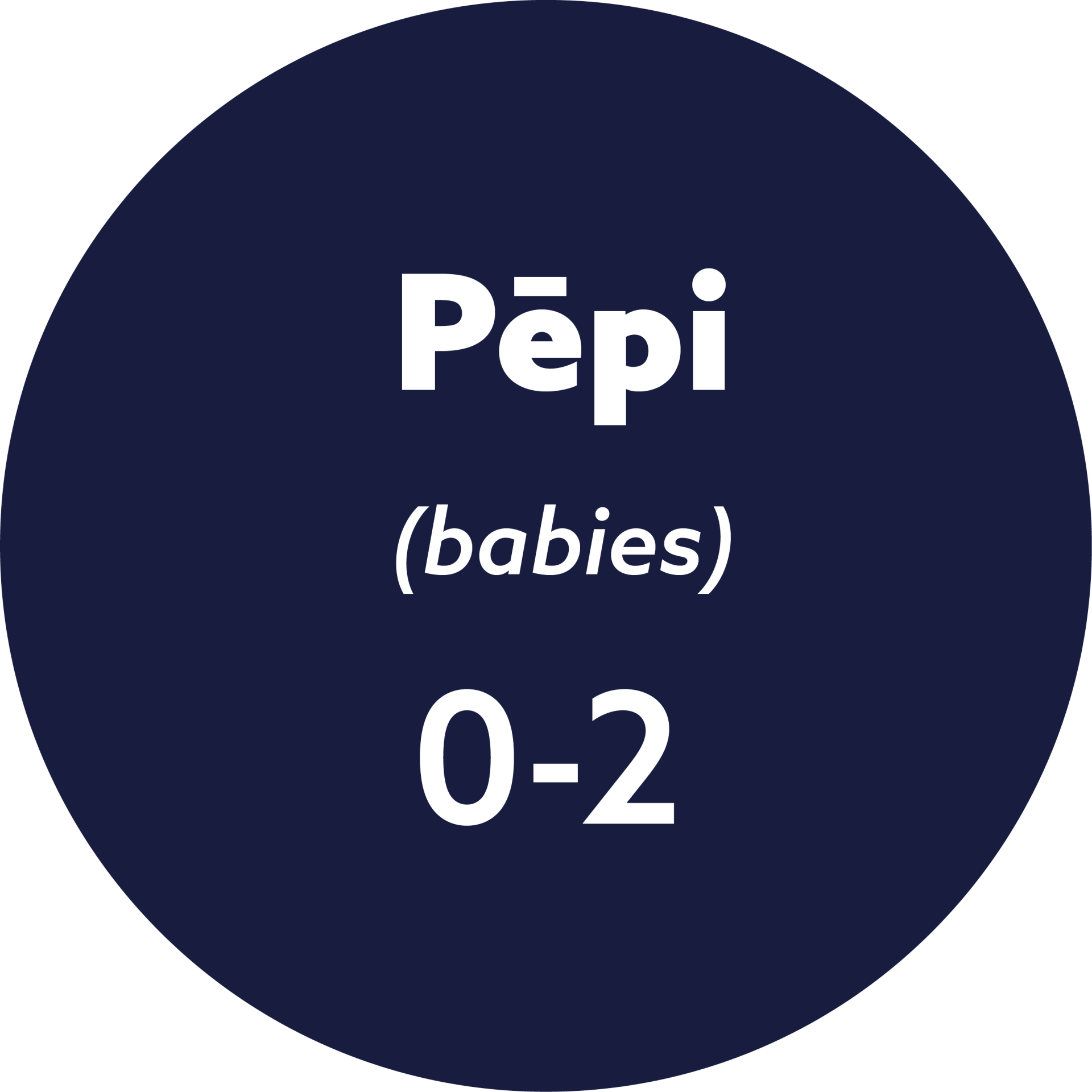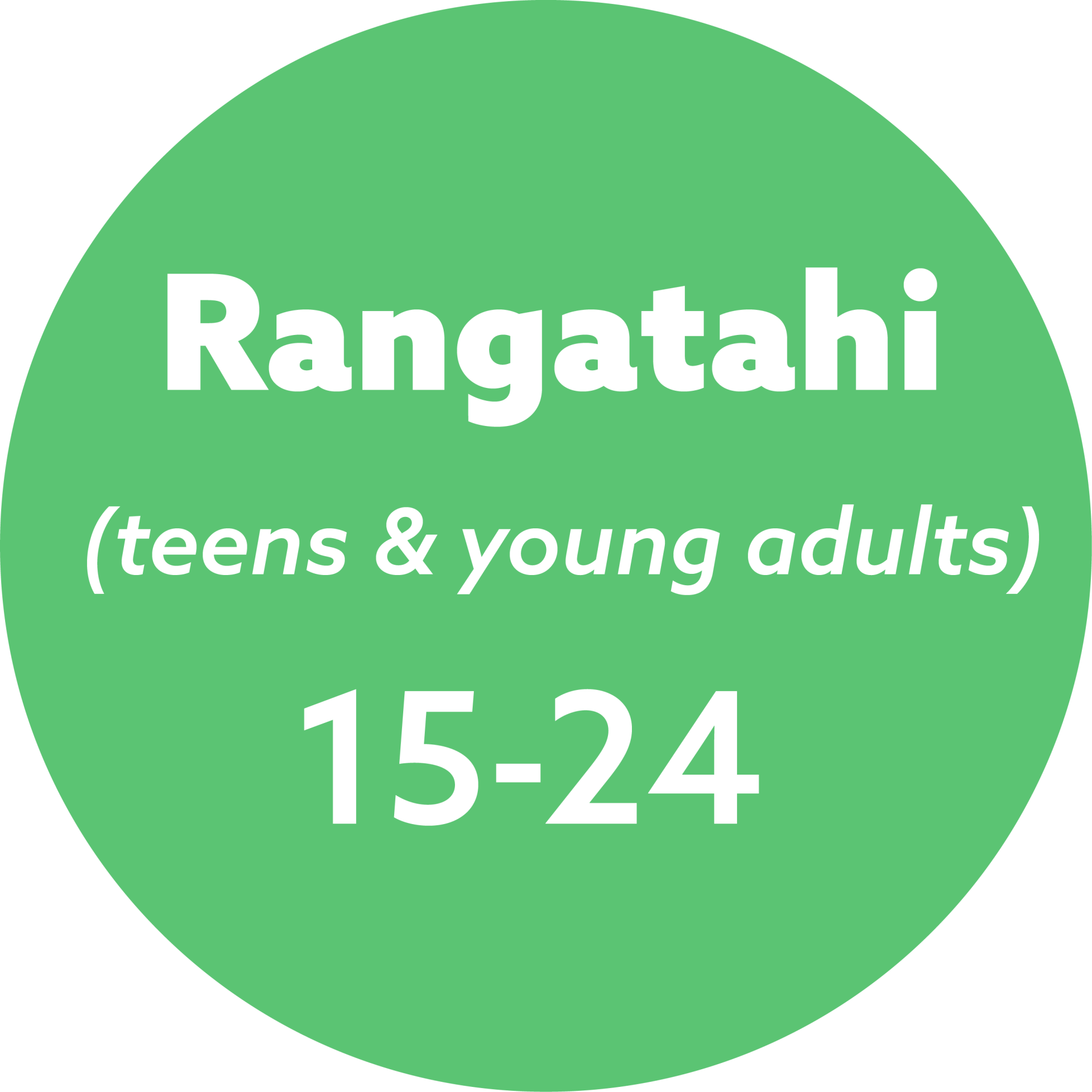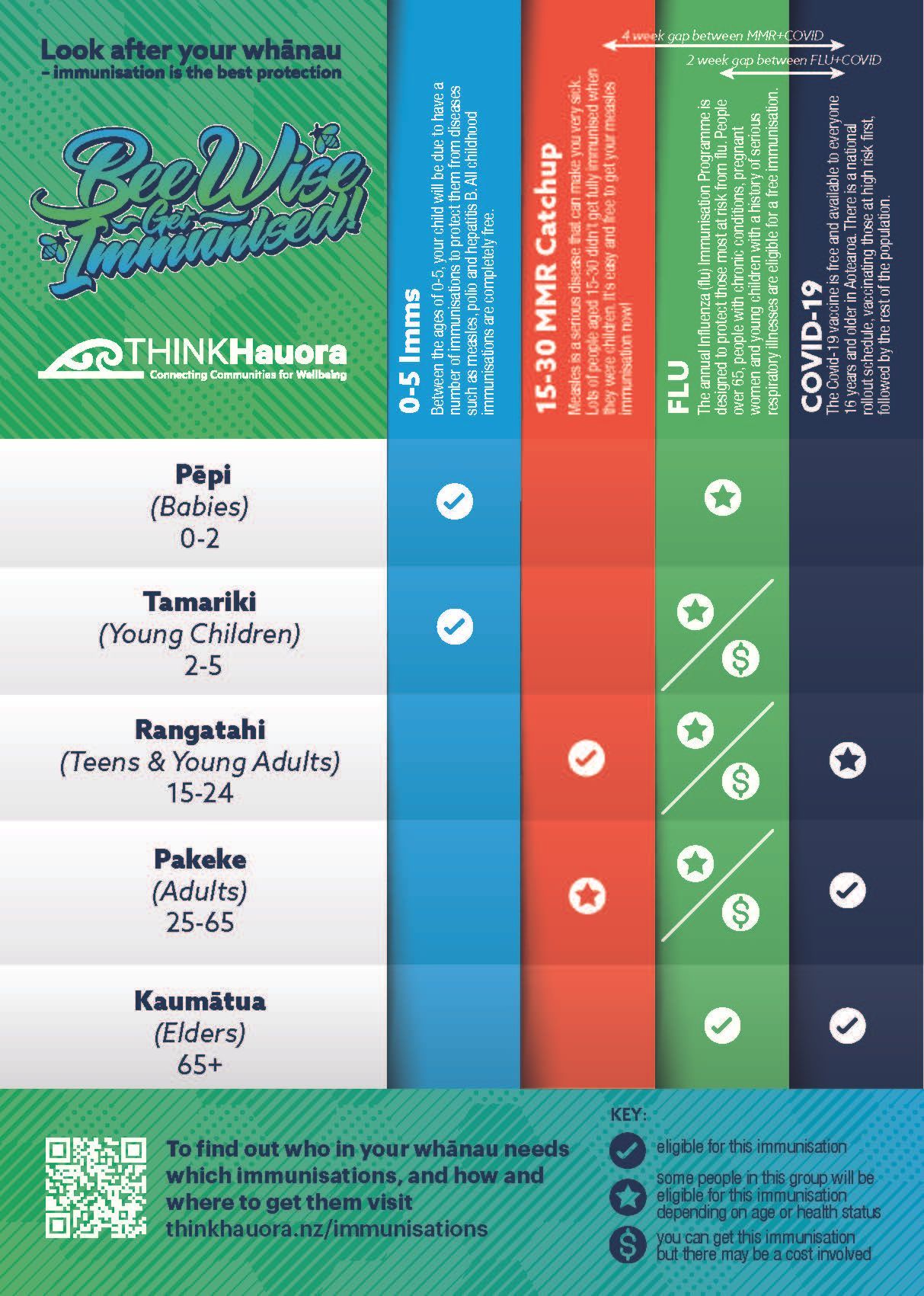
Immunisations protect your whānau.
Immunisation is the best form of defence against a range of serious diseases and viruses.
Immunisations can help protect the whole whānau - from young pēpi (babies) to our tīpuna (grandparents). Getting immunised against serious diseases means we can protect the ones we love.
The main immunisation programmes are:
- Childhood immunisations - a national schedule of immunisations for children aged 0-5
- Measles (MMR) - for those who may not have been fully immunised as a child
- The annual Influenza (flu) Immunisation programme - designed to protect those most at risk from flu
- The COVID-19 vaccine and booster programme
You can find out more about each immunisation programme below and how and where you can get yourself and your whānau immunised.
Who should get which immunisation, and when?
Use our interactive tool below for a quick glance at the immunisations available for the different members of your whānau.
Get a personalised immunisation schedule
Based on the National Immunisation Schedule, this handy tool shows what immunisations your child needs from 6 weeks to 13 years, and the dates due. It does not look at your child’s medical records, so your child may have had some vaccines already.
Use this as a general guide, and be aware that dates may vary depending on previous vaccination dates, or other clinical circumstances. Always consult your usual doctor, nurse, or healthcare provider about your child’s vaccinations.

Find out more about the different immunisation programmes
Click on the images below for more information and resources about Childhood Immunisations, MMR Catch up, Flu and Covid-19 vaccine programmes.
Common questions about immunisations
-
What is an immunisation?
Immunisation is the most effective way to actively protect against preventable diseases, such as whooping cough, tetanus, hepatitis B and measles.
The first time we are exposed to a germ, for example a bacterium or virus, it takes time for the immune system to respond and we become unwell. However, once the immune system has memory of the infection, it is able to respond rapidly to destroy the germ the next time we are exposed.
-
How well does immunisation work?
Immunisation works very well to help to prevent a wide range of serious diseases. Sometimes it does not provide complete protection, however in this case, an immunised person is likely to get the disease less severely than someone who is not immunised. This is because the body is still able respond rapidly.
-
What to expect during childhood immunisations
Immune.org.nz has some information on what to expect during an immunisation for your child - both before, during and after.
-
How does our body fight against disease?
Find out from immune.org.nz how our bodies use anti-bodies provided by immunisations to protect us against dangerous viruses and diseases. Discover more.
-
How does getting immunised help protect those we love?
This video from immune.org.nz explains how 'herd immunity' works - the more people who are immunised against disease, the harder it is for diseases to spread to those who are unable to be vaccinated due to ill health.
Palmerston North 4410
All Rights Reserved | THINK Hauora






